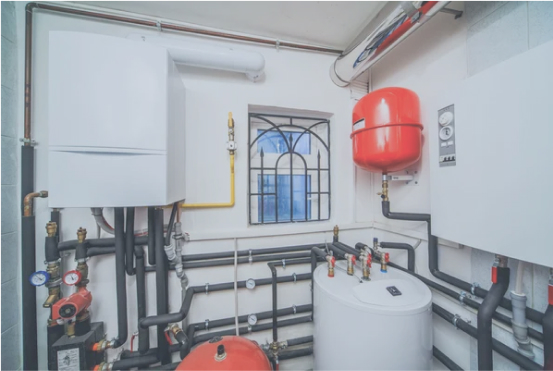When it comes to heating your home, two popular options stand out: heat pumps and gas boilers. Each technology comes with its own set of advantages and considerations, and one crucial factor to weigh is efficiency. In this guide, we’ll delve into the efficiency of heat pumps and gas boilers to help you make an informed decision for your home heating needs.
Understanding Heat Pumps
How Heat Pumps Work:
Heat pumps are a renewable energy technology that extracts heat from the air or ground and transfers it into your home. They operate on the principle of moving heat from a lower temperature to a higher one, making them highly efficient even in colder climates.
Efficiency Highlights:
- Seasonal Performance Factor (SPF): Heat pumps are measured by their Seasonal Performance Factor, which represents their efficiency over an entire heating season. Modern heat pumps can achieve impressive SPF ratings, indicating high energy efficiency.
- Variable Speed Technology: Many heat pumps come equipped with variable-speed compressors, allowing them to adjust their output based on the heating demand. This results in consistent indoor comfort and optimized energy usage.
Pros of Heat Pumps:
- Energy Efficiency: Heat pumps can achieve high levels of efficiency, especially in moderate climates.
- Renewable Energy Source: They rely on the heat naturally present in the environment, making them a more sustainable choice.
- Cooling Capability: Heat pumps often come with built-in cooling functions, providing a dual-purpose HVAC solution.
Cons of Heat Pumps:
- Initial Cost: The upfront cost of purchasing and installing a heat pump can be higher than that of a gas boiler.
- Climate Dependency: In extremely cold climates, the efficiency of air-source heat pumps may decrease, and supplementary heating may be required.
Gas Boilers: The Conventional Choice
How Gas Boilers Work:
Gas boilers use natural gas or propane to heat water, which is then circulated through radiators or underfloor heating systems to warm your home. They have been a staple in home heating for decades, providing reliable and consistent warmth.
Efficiency Highlights:
- Annual Fuel Utilization Efficiency (AFUE): Gas boilers are rated by their AFUE, which measures the percentage of fuel converted into usable heat. Modern gas boilers can achieve high AFUE ratings, making them efficient in converting fuel to heat.
- Condensing Technology: Condensing gas boilers recover heat from the combustion process, further increasing their efficiency by utilizing latent heat.
Pros of Gas Boilers:
- Quick Heat Output: Gas boilers provide rapid and consistent heating, making them ideal for cold climates.
- Established Technology: Gas boilers have a long history of reliability and are well-established in the heating industry.
- Suitable for Large Spaces: Gas boilers are often preferred for larger homes with high heating demands.
Cons of Gas Boilers:
- Carbon Emissions: While natural gas is considered a cleaner-burning fossil fuel, it still produces carbon emissions.
- Dependence on Fossil Fuels: Gas boilers rely on a non-renewable fuel source, contributing to environmental concerns.
Choosing the Right System for Your Home
Considerations:
- Climate: In moderate climates, heat pumps may offer a more energy-efficient solution. In colder climates, a well-designed gas boiler system may be more suitable.
- Upfront Costs vs. Long-Term Savings: Evaluate your budget and consider the long-term energy savings each system can provide.
- Environmental Impact: If reducing your carbon footprint is a priority, a heat pump may align better with your sustainability goals.
Conclusion:
Both heat pumps and gas boilers have their merits, and the right choice depends on your specific circumstances. Assessing your heating needs, climate, and environmental priorities will guide you toward the most efficient and suitable option for your home.
Remember to consult with heating professionals to ensure the system you choose aligns with your unique requirements. Whichever path you take, investing in an energy-efficient heating system is a step toward a comfortable and sustainable home.
Disclaimer: Product availability and specifications may vary. Please check with manufacturers or heating professionals for the latest information.

